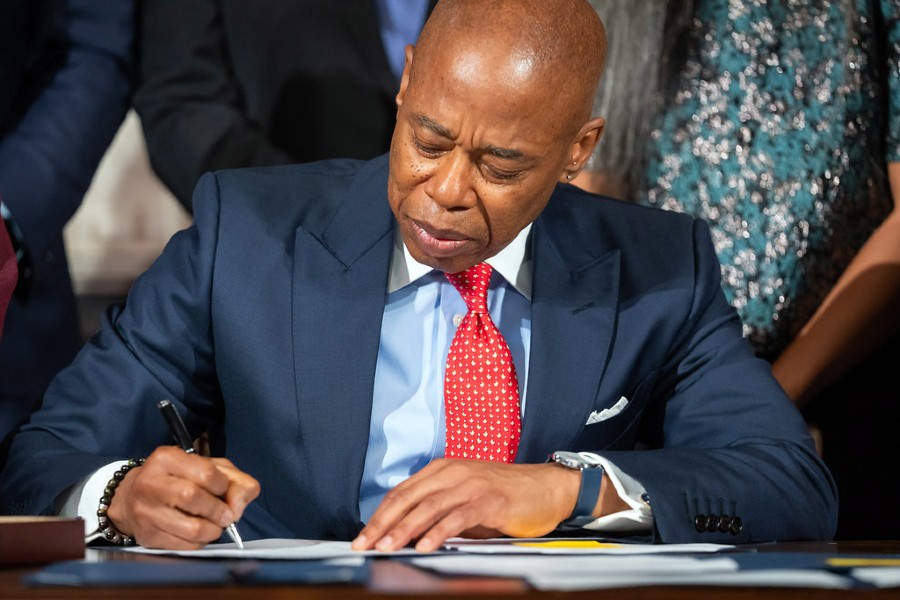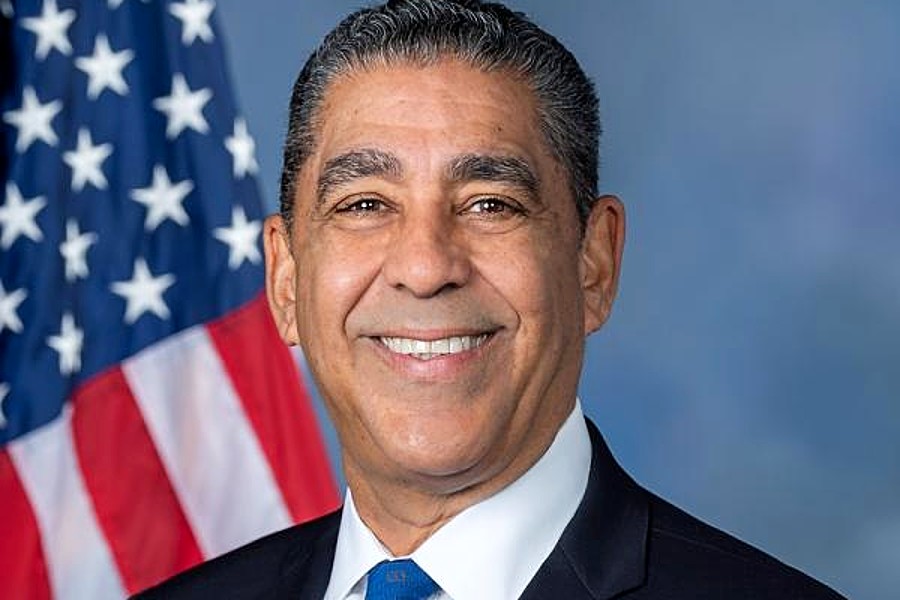
Following hearings from Hollis to Harlem and testimony from members of the public, experts, elected officials, good government groups, and academics.
The 2024 New York City Charter Revision Commission (CRC) released its preliminary staff report today.
The recommendations will serve as a guide for the CRC as it continues to review the entire charter to benefit working-class New Yorkers and develops final ballot proposals to be decided by voters in the November general election. Recommendations broadly fall into policy areas related to fiscal responsibility, public safety, minority- and women-owned businesses (M/WBE), and modernization of several city policies related to film permitting, waterfront development, cleaner streets, and combining duplicative advisory boards. CRC members have received testimony in-person and, for the first time, virtually, from more than 80 New Yorkers at public hearings. In addition, the CRC has received more than 1,400 written comments. Public hearings to date have been attended by more than 350 New Yorkers in-person and virtually.
Commission staff recommended that the CRC further consider and solicit feedback concerning measures for the following policies:
- Fiscal Responsibility: Improve assessment of the financial impact of legislation on the New York City budget, including by requiring an assessment of fiscal impacts earlier in the legislative process and by involving additional parties in the assessment process; harmonize the charter-mandated budget process with the New York City Council’s power to pass legislation with budget impacts outside the annual appropriations process; update provisions concerning capital plan inventory and maintenance estimates, including by adding an explicit statement of purpose linking the infrastructure assessment to the Ten-Year Capital Strategy, modifying the inventory to reflect additional pertinent details, and including additional criteria for identification of capital needs to be included in the Ten-Year Capital Strategy; and modernize deadlines and related technical requirements to promote efficiency in the budget process.
- Public Safety: Enhance the deliberative process in legislation pertaining to public safety while preserving the city’s ability to take expedited action, when necessary, as well as increase opportunities for New Yorkers, public safety agencies, and key stakeholders, including unions, to have input into legislation affecting public safety.
- Minority- and Women-Owned Businesses: Exploring ways to improve and streamline services provided to, and promote the utilization of, M/WBEs.
- Modernization: As the city charter is more than a century old and has been amended over 100 times just between 1989 and 2010, inconsistencies and outdated policies are often identified that require attention. This report focuses on six specific areas for greater focus on modernization:
- Film Permitting Authority – Granting employees of the Mayor’s Office of Media and Entertainment the power to issue film permits by revising the Charter to give the New York City Department of Information Technology and Telecommunications (which houses the Mayor’s Office of Media and Entertainment) the same powers and authorities for film and television permitting as are currently vested in the Department of Small Business Services.
- Public Bonds – Eliminate outdated practice dating back to 1872 that required many elected or appointed public officials (including the New York City comptroller and New York City corporation counsel) to secure a bond in order to serve in public office.
- Waterfront Permitting – Streamline the waterfront permitting process for the construction and alteration of all structures on waterfront property, including maritime structures, to the New York City Department of Buildings.
- Keeping City Streets Clean – Expand the New York City Department of Sanitation’s responsibilities to facilitate cleaner streets, sidewalks, and city-owned property.
- Duplicative Archive Review Boards – Combine the Archival Review Board and Archive, Reference, and Research Board into one body.
- Resident Feedback – Periodically conduct and publish a statistically valid resident feedback survey, including findings at the community district level, and across major demographic categories, in order to improve the city’s understanding of quality-of-life concerns and views on local service delivery. These findings could inform decisions about municipal operations and the city budget.
“Serving on my third New York City Charter Revision Commission — for my third different mayoral administration — is an incredible honor,” said CRC Chair Carlo Scissura. “Our esteemed and diverse group of commissioners has relished this opportunity to hear the passionate voices and unique perspectives of New Yorkers from across the city, and we are eager to dig in further on the issues presented in this report, hear from even more New Yorkers, and determine the best proposals for November’s ballot.”
“No matter where you live or grew up, your race, religion, or creed, there is one unifying opinion all New Yorkers share: we all want better, more efficient, and a more transparent government,” said CRC Vice Chair Dr. Hazel N. Dukes. “Now, with the key recommendations in this report as a guide to continue this important work, my fellow commissioners and I will continue our public service for this commission and ensure the city’s charter better serves every New Yorker.”
“This report serves as both a summary of the extensive efforts of the commission and its staff so far, which has brought together New Yorkers from all walks of life, across all five boroughs, and serves as a critical guide for the commission to continue its important work,” said CRC Executive Director Diane Savino. “We know the ideas presented here will spark great discussion from our commissioners, elected officials, community groups, and working-class New Yorkers as we all work together to put forward questions to voters so they can flip their ballots and make the ultimate decisions this November.”
The public is invited to continue providing their ideas and comments regarding the charter and the preliminary report by testifying in-person or virtually at a series of upcoming public hearings in each of the five boroughs. Each meeting is held in the evening to accommodate as many New Yorkers as possible. Interested participants can attend any hearing or multiple hearings, even if the hearing is not in their home borough. The public can also submit testimony and comments by email to charterinfo@citycharter.nyc.gov.
The public hearing schedule is available below and on the CRC’s Public Meetings and Hearings webpage:
- Staten Island
- Monday, June 24, 2024
- 5:00 PM – 8:00 PM
- Curtis High School Auditorium 105 Hamilton Avenue, Staten Island, NY 10301
- Queens
- Wednesday, June 26, 2024
- 5:00 PM – 8:00 PM
- New York City Department of Design and Construction Multipurpose Room 30-30 Thomson Avenue, Long Island City, NY 11101
- Brooklyn
- Thursday, June 27, 2024
- 5:00 PM – 8:00 PM
- Medgar Evers College, 1650 Bedford Avenue, Brooklyn, NY 11225
- Manhattan
- Monday, July 8, 2024
- 5:00 PM – 8:00 PM
- Schomburg Center for Research in Black Culture, 515 Malcolm X Boulevard (entrance on 135th Street), New York, NY 10037
- Staten Island
- Tuesday, July 9, 2024
- 5:00 PM – 8:00 PM
- Staten Island University Hospital, 475 Seaview Avenue, Staten Island, NY 10305
- Bronx
- Thursday, July 11, 2024
- 5:00 PM – 8:00 PM
- Fordham University, McShane Center Great Hall 441 East Fordham Road, Bronx, NY 10458
All meetings are open to the public, live streamed, have language translation services and American Sign Language interpreters available, and are held at accessible spaces. The public was alerted to CRC public meetings already held through legal notices, media outreach, including through ethnic and community media, and by utilizing messages through organizations with large distribution lists, including community boards and elected officials. Public notices for each meeting were published in the city record and made available on the CRC website. All notices were translated into Bengali, simplified and traditional Chinese, and Spanish.
The recommendations within the preliminary report are not the final recommendations of the CRC or in any way binding on the CRC. The CRC may choose to add proposals for discussion or decline to pursue these recommendations. Further public feedback will shape the contours of these and other proposals and assist the CRC in its deliberations. Ultimately, it is for the commissioners to decide what proposals advance to the ballot for consideration by the people of the City of New York.
Become a Harlem Insider!
By submitting this form, you are consenting to receive marketing emails from: . You can revoke your consent to receive emails at any time by using the SafeUnsubscribe® link, found at the bottom of every email. Emails are serviced by Constant Contact










